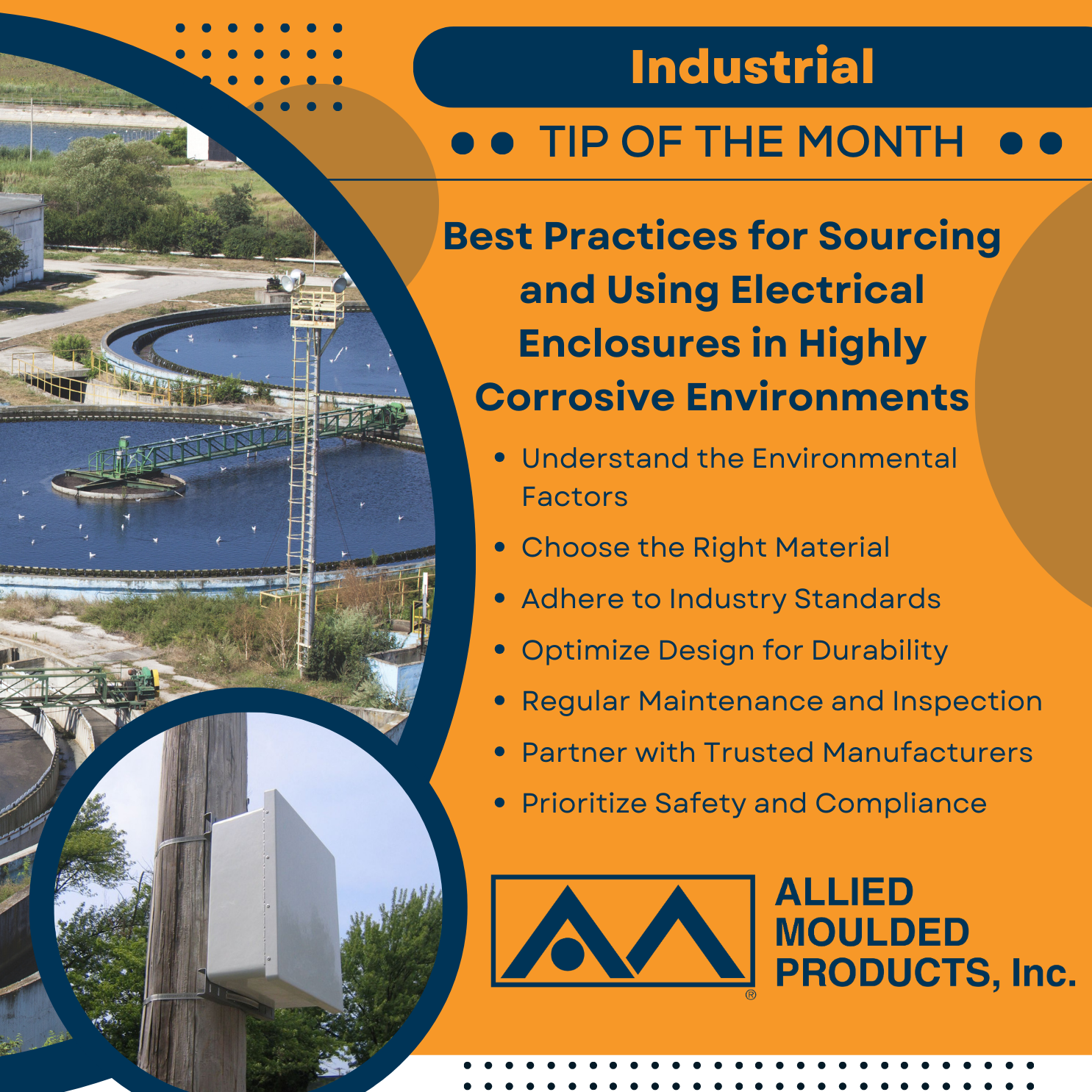
Best Practices for Sourcing and Using Electrical Enclosures in Highly Corrosive Environments
Industrial settings often present unique challenges, particularly when working in environments prone to corrosion. Corrosive elements such as chemicals, saltwater, and extreme temperatures can degrade equipment, leading to operational inefficiencies, costly repairs, and safety risks. To combat these challenges, selecting and maintaining the right electrical enclosures is critical. Here’s a guide to the best practices for sourcing and using electrical enclosures in highly corrosive environments.
1. Understand the Environmental Factors
The first step in sourcing an appropriate electrical enclosure is assessing the specific environmental challenges it will face. For instance:
- Chemical Exposure: Industries like petrochemicals or wastewater treatment often expose equipment to harsh chemicals.
- Saltwater and Moisture:Marine and coastal applications must combat salt-induced corrosion and humidity.
- Extreme Temperatures: High or low temperatures can compromise the integrity of many materials.
Accurately identifying these factors helps narrow down material and design requirements for enclosures.
2. Choose the Right Material
Material selection is paramount when sourcing enclosures for corrosive environments. Common materials include:
- Fiberglass Reinforced Polyester (FRP): Highly resistant to corrosion, non-conductive, and lightweight, FRP enclosures are a top choice for industrial applications.
- Stainless Steel: Known for its durability and corrosion resistance, stainless steel is ideal for demanding environments but can be costlier.
- Polycarbonate: Suitable for lighter industrial needs, polycarbonate enclosures offer good resistance to UV radiation and chemicals.
For many industrial scenarios, fiberglass enclosures strike the perfect balance between durability, corrosion resistance, and cost-effectiveness.
3. Adhere to Industry Standards
When selecting enclosures, ensure they meet relevant industry standards. Some critical certifications include:
- NEMA Ratings: Specify protection levels against elements like dust, water, and corrosive substances.
- UL Listings: Verify safety and performance standards.
- IP Ratings: Highlight ingress protection against solids and liquids.
For highly corrosive environments, a NEMA 4X rating is often recommended, as it ensures protection against corrosion, water ingress, and extreme conditions.
4. Optimize Design for Durability
In addition to material selection, the design of the enclosure plays a significant role in its longevity. Look for features such as:
- Sealed Edges and Gaskets: Prevent moisture and contaminants from penetrating the enclosure.
- UV Resistance: Ensures long-term reliability in outdoor or high-exposure environments.
- Mounting Options: Elevated or pole-mounted designs can prevent direct contact with corrosive surfaces.
5. Regular Maintenance and Inspection
Even the most durable enclosures require routine care to ensure longevity. Follow these maintenance practices:
- Inspect Gaskets and Seals:Check for wear or degradation and replace as needed.
- Clean Surfaces: Remove residues that might accelerate corrosion.
- Monitor Environment:Test for changes in pH levels, salinity, or temperature that might necessitate upgrading or replacing enclosures.
Establishing a regular maintenance schedule can extend the life of enclosures significantly.
6. Partner with Trusted Manufacturers
Sourcing enclosures from reputable manufacturers ensures access to high-quality, reliable products. Companies like Allied Moulded specialize in innovative fiberglass enclosures designed specifically for harsh industrial environments. Their products combine industry-leading materials with practical design features to address the challenges of corrosive settings.
7. Prioritize Safety and Compliance
Finally, prioritize safety and compliance throughout the sourcing and usage process. Align with local and international regulations to avoid penalties and enhance operational efficiency. Additionally, providing training to staff on proper enclosure use and maintenance can reduce the risk of equipment failure and workplace accidents.
Conclusion
In highly corrosive environments, electrical enclosures are a vital line of defense for equipment and operational integrity. By understanding the environmental challenges, selecting the right materials, adhering to standards, and maintaining regular inspections, businesses can maximize the performance and lifespan of their enclosures.
For the most dependable solutions, turn to industry leaders like Allied Moulded, whose expertise in electrical enclosures ensures peace of mind in even the harshest conditions. Explore their range of fiberglass enclosures to find the perfect fit for your industrial needs.
